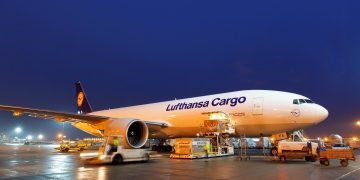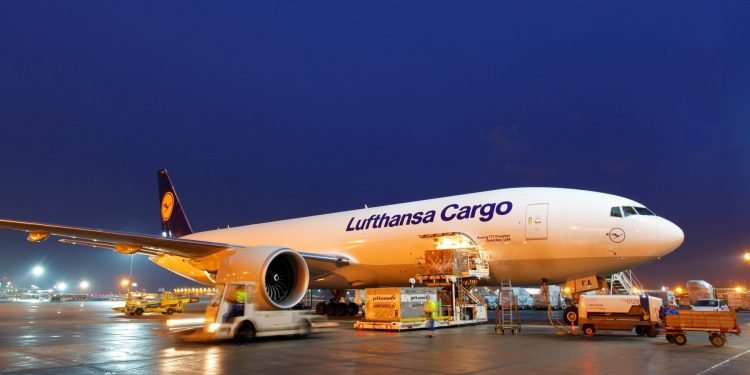By Eva Richardson – The Logistic News
March 19, 2025 – As the global air cargo industry navigates shifting economic landscapes, Lufthansa Cargo is projecting a year of both opportunities and challenges, citing market expansion, ongoing capacity constraints, and geopolitical uncertainties as the defining factors of 2025.
Growth Expectations in a Complex Market
Despite ongoing volatility, Lufthansa Cargo forecasts a 3-5% increase in global cargo demand, underpinned by an estimated 3.3% rise in global GDP. Notably, emerging markets such as Vietnam and India are experiencing rapid economic acceleration, fueling demand for air freight solutions to support booming industrial and e-commerce sectors.
One of the primary drivers of air cargo growth is the continued expansion of e-commerce, particularly into Europe, where annual growth is expected to reach 12%. Additionally, pharmaceutical shipments are projected to rise by 3.3%, while the high-tech sector—including semiconductors and electronics—will see an increase of over 3%, reinforcing the critical role of air cargo in global supply chains.
Capacity Challenges and Market Constraints
While demand is on the rise, capacity constraints remain a pressing issue. Lufthansa Cargo reports that widebody freighter capacity will only grow by 2% annually through 2030, while widebody belly capacity remains 19% below 2019 levels. With global passenger traffic still recovering and restrictions on European airspace due to geopolitical tensions over Russia, freighter operators face mounting pressure to optimize routes and operational efficiency.
To mitigate these constraints, Lufthansa Cargo is placing an emphasis on network flexibility, adapting its flight operations to cater to shifting supply chain dynamics. A key example is the company’s recent launch of freighter operations from Ho Chi Minh City to Los Angeles, a response to manufacturing shifts in Southeast Asia as businesses diversify sourcing strategies away from China.
Geopolitical and Economic Uncertainties
Beyond logistical hurdles, protectionist trade policies, inflationary pressures, and regional conflicts continue to shape the global air cargo outlook. Lufthansa Cargo highlights economic unpredictability and regulatory shifts as key variables that will impact both global trade routes and cargo pricing structures.
With ongoing disruptions in Red Sea shipping lanes, increased fuel price volatility, and an unpredictable economic climate in the EU and North America, air cargo carriers must remain agile in adjusting to market fluctuations. Lufthansa Cargo’s strategy for 2025 revolves around enhancing operational efficiency, leveraging data-driven logistics, and maintaining high standards in speed, reliability, and security.
Strategic Adaptations for the Year Ahead
To navigate the evolving air freight landscape, Lufthansa Cargo plans to:
- Expand its network reach, increasing freighter routes to high-demand markets in Asia, North America, and the Middle East.
- Optimize capacity management, ensuring efficient utilization of its existing fleet while evaluating potential fleet expansion.
- Leverage digital innovations, including AI-powered logistics solutions, to enhance cargo tracking, demand forecasting, and supply chain visibility.
- Strengthen sustainability commitments, investing in sustainable aviation fuel (SAF) and carbon offset programs to align with industry-wide environmental goals.
Looking Ahead: Lufthansa Cargo’s Industry Impact
With air cargo playing an increasingly vital role in global trade resilience, Lufthansa Cargo’s strategic adaptability and investment in emerging logistics technologies will be crucial for maintaining its market leadership. As supply chain disruptions persist and demand for expedited, high-value shipments grows, Lufthansa Cargo’s ability to pivot and innovate will define its success in 2025 and beyond.
For the latest insights on global air cargo trends, market forecasts, and industry developments, stay connected with The Logistic News.























